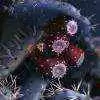-
Celiac.com Sponsor (A1):
Celiac.com Sponsor (A1-M):
-
Get Celiac.com Updates:Support Our Content
Leaderboard
-
December 5 2011
December 4 2011
December 3 2011
December 2 2011
December 1 2011
November 30 2011
November 29 2011
November 28 2011
Important Information
NOTICE: This site places This site places cookies on your device (Cookie settings). on your device. Continued use is acceptance of our Terms of Use, and Privacy Policy.













